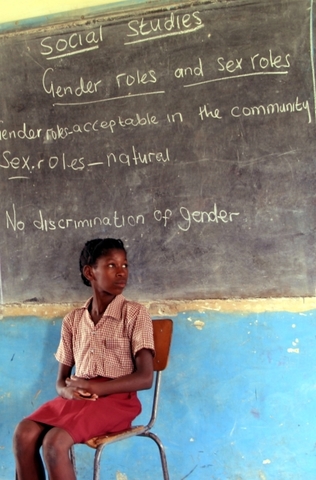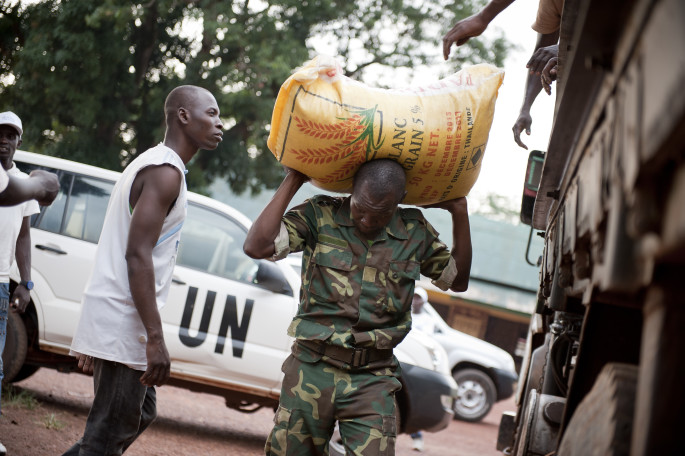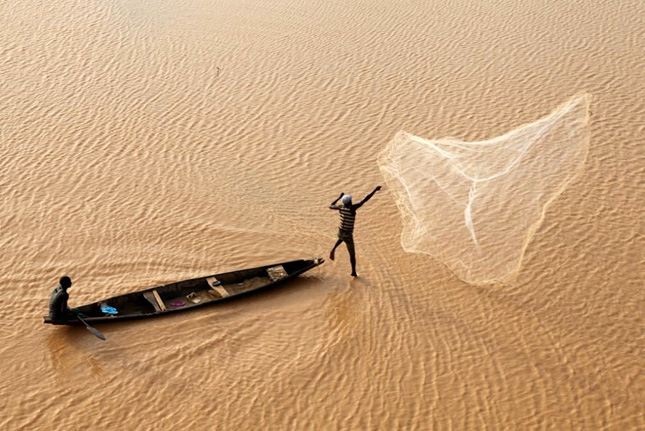-
ECSP Weekly Watch | November 12 – 15
›
A window into what we’re reading at the Wilson Center’s Environmental Change and Security Program
Shell Wins Appeal to Overturn Landmark Emissions Ruling (Al Jazeera)
Three years ago, a court in the Netherlands ruled in favor of environmentalists and required energy giant Shell to drastically reduce its greenhouse gas (GHG) emissions. The decision would compel the company to cut the absolute carbon emissions it created in 2019 by 45% by the year 2030—including emissions caused by its products. This ruling was the first of its kind by requiring companies to adhere to the Paris Agreement, and it ignited further attempts by climate activists to take legal measures against other fossil fuel companies.
-
Sexuality Education Begins to Take Root in Africa
›
In Kenya, primary and secondary school students take courses called Life Skills Education. So do students in Malawi, Mozambique, Namibia, and Swaziland. South Sudan adds “peace-building” to the subject title. Lesotho, Madagascar, Rwanda, Tanzania, Uganda, and Zambia are more direct. These countries add the word “sexuality” to the course name.
-
Can We Save the World’s Remaining Forests? A Look at ‘Why REDD Will Fail’
›
As climate change threatens the stability of ecosystems around the world, the preservation of forests is seen as a “win-win” solution to curbing planet-warming emissions while producing value for developing country economies.
-
As More Aid Flows to Fragile States, a Call for a Better Approach
›March 7, 2017 // By Sreya Panuganti
Global poverty has been reduced dramatically over the past two decades. Less than 11 percent of the world’s population were living in extreme poverty in 2013 compared to 35 percent in 1990. But improvements have largely come in stable countries. Many of the remaining pockets of extreme poverty are in “fragile states,” countries that are vulnerable to internal and external shocks and can easily tip into crisis when faced with an environmental, economic, social, or political change.
-
Planetary Security Conference Convenes Amidst “Unsettling New Normal”
›December 14, 2016 // By Schuyler NullEnvironmental security? Climate security? How about planetary security. Last week at the venerable Peace Palace in The Hague, nearly 300 experts from around the world met for the somewhat dramatically named Planetary Security Conference, a new initiative aimed at bringing together people working on all things related to the environment, climate change, and their security implications.
-
Calming the Waters: Why We Need to Better Integrate Climate and Water Policy
›
The Nile River is shared by 11 countries, for which it is vital for food and energy production, freshwater, and as a means of transportation. Sharing the resources of the Nile has, however, been politically difficult. Recently, the construction of the Grand Ethiopian Renaissance Dam has caused a major dispute with downstream Egypt which fears the dam will affect water flow in its own territory.
Showing posts from category Netherlands.








